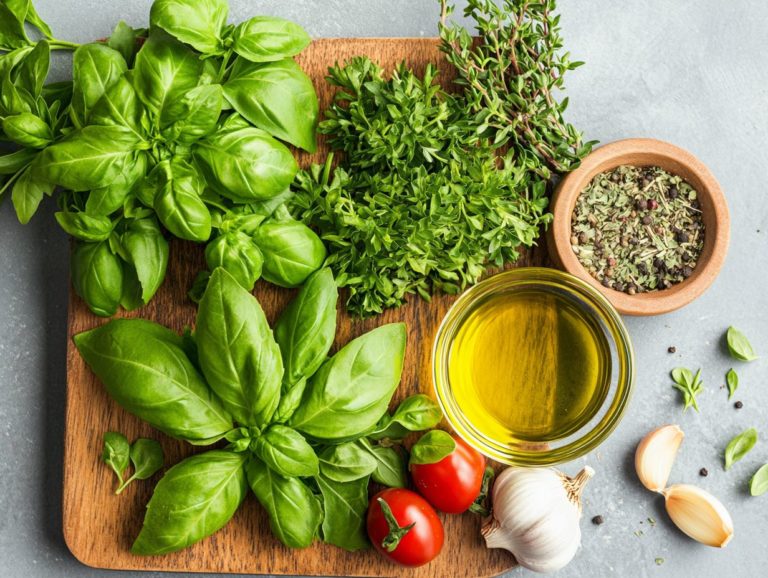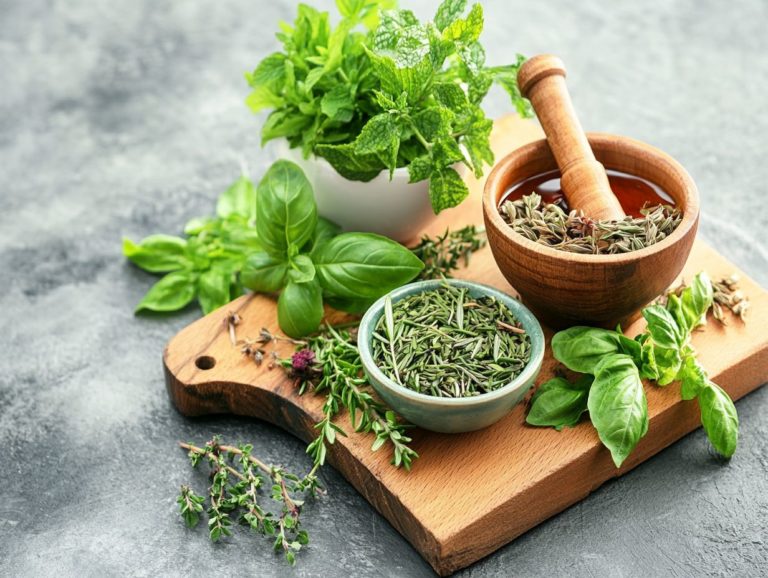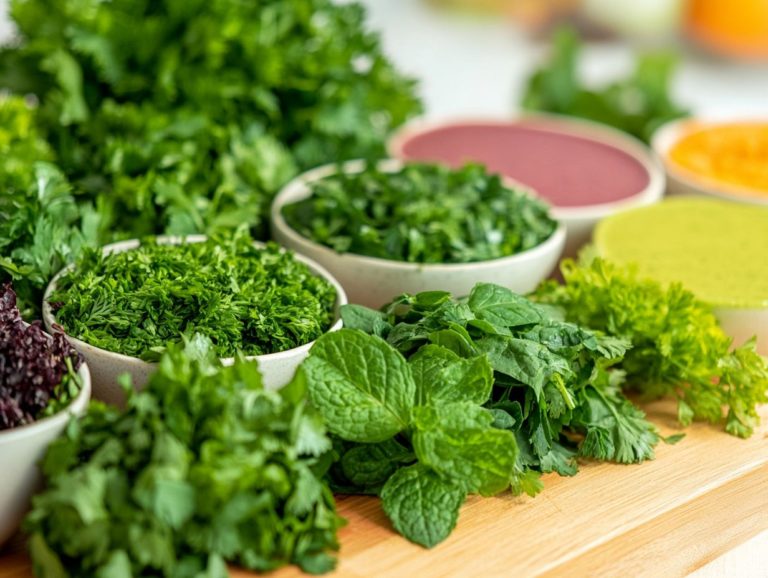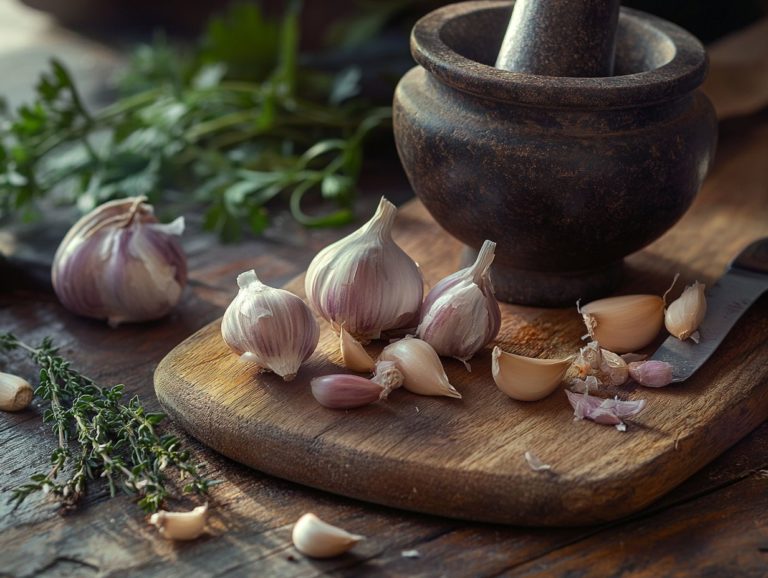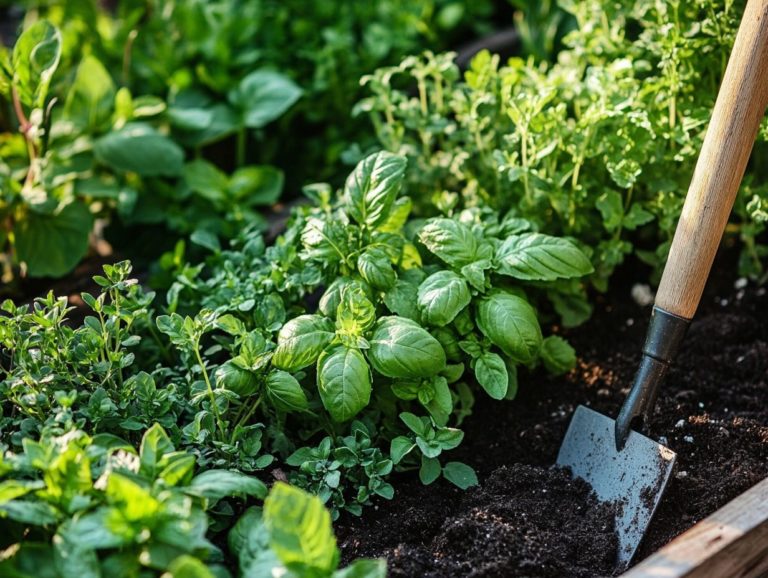Herbal Remedies for Seasonal Affective Disorder
Seasonal Affective Disorder (SAD) impacts many individuals, particularly during the gloomy months, ushering in feelings of sadness, fatigue, and anxiety.
Understanding SAD, its causes, and its symptoms is vital for effective management.
While traditional treatments such as light therapy and antidepressants can be beneficial, many are now exploring herbal remedies as a complementary approach.
This article delves into various effective herbal options, highlighting their benefits and offering guidance on how to safely incorporate them alongside conventional treatments.
Learn how to manage SAD effectively and boost your well-being this season!
Contents
- Key Takeaways:
- Understanding Seasonal Affective Disorder (SAD)
- Treatment Options for SAD
- Herbal Remedies for SAD
- Combining Herbal Remedies with Traditional Treatment
- Tips for Choosing and Using Herbal Remedies for SAD
- Frequently Asked Questions
- Discover What SAD Really Is!
- What are the symptoms of Seasonal Affective Disorder (SAD)?
- How can herbal remedies help with Seasonal Affective Disorder (SAD)?
- What are some popular herbal remedies for Seasonal Affective Disorder (SAD)?
- Are herbal remedies safe to use for Seasonal Affective Disorder (SAD)?
- Can herbal remedies be used as a substitute for traditional treatment for Seasonal Affective Disorder (SAD)?
Key Takeaways:
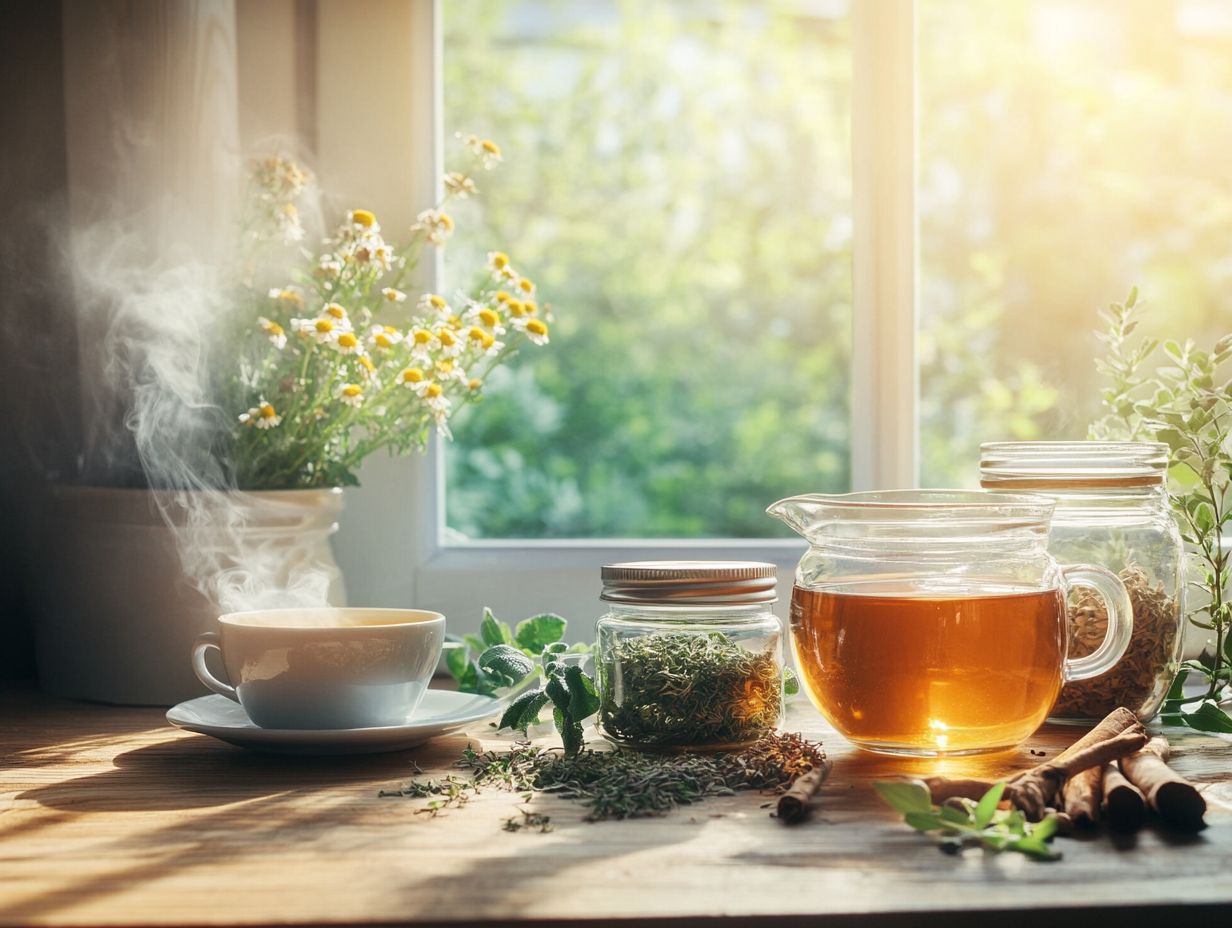
- SAD is a type of depression that occurs in specific seasons, primarily due to less sunlight and hormonal changes.
- Traditional treatments like light therapy and medication are common, but herbal remedies can also help manage symptoms.
- Popular herbs for SAD include St. John’s Wort, Rhodiola Rosea, and Saffron. These can enhance traditional treatment methods.
Understanding Seasonal Affective Disorder (SAD)
Understanding Seasonal Affective Disorder (SAD) is essential for recognizing how this psychological condition influences individuals, particularly during those darker seasons when natural light dwindles. Marked by depressive symptoms, SAD can profoundly affect mood and overall mental health, often resulting in heightened anxiety and shifts in behavior.
Effective diagnosis and treatment are vital. You might explore therapies like cognitive behavioral therapy and light therapy. Lifestyle adjustments, such as regular exercise, can also help.
What is SAD?
Seasonal Affective Disorder (SAD) is a specific type of depression that emerges during particular times of the year, predominantly in the fall and winter months when daylight hours dwindle.
What sets this condition apart from other forms of depression is its strong dependence on natural sunlight exposure. Research reveals that insufficient sunlight can throw off your body’s circadian rhythms and significantly disrupt serotonin levels. This disruption may lead to symptoms such as fatigue, irritability, and a tendency to withdraw from social interactions. Unlike chronic forms of depression that may linger throughout the year, SAD often lifts with the arrival of spring, underscoring the vital role light plays in regulating mood and emotional well-being.
By grasping this connection, you can take proactive steps to seek appropriate treatments, such as light therapy or lifestyle adjustments, that effectively counteract the effects of reduced sunlight.
Causes and Symptoms
The causes of Seasonal Affective Disorder (SAD) are complex and involve a blend of biological, environmental, and psychological factors that can lead to significant depressive symptoms.
One of the main culprits behind SAD is the imbalance of brain chemicals, especially serotonin and melatonin. During those gloomy winter months, the shorter daylight hours can throw a wrench in the natural production of these vital chemicals, which are essential for regulating mood and sleep patterns.
A lack of sunlight also means lower vitamin D levels, a critical nutrient that impacts brain function and emotional well-being. This combination can lead to mood shifts, heightened anxiety, and a pervasive sense of lethargy. Understanding these elements is crucial for anyone looking to grasp the intricacies of this disorder.
Treatment Options for SAD
Treatment options for Seasonal Affective Disorder (SAD) are diverse, spanning from natural remedies to more structured therapeutic approaches designed to alleviate depressive symptoms and enhance your mental well-being.
Traditional Treatment Methods
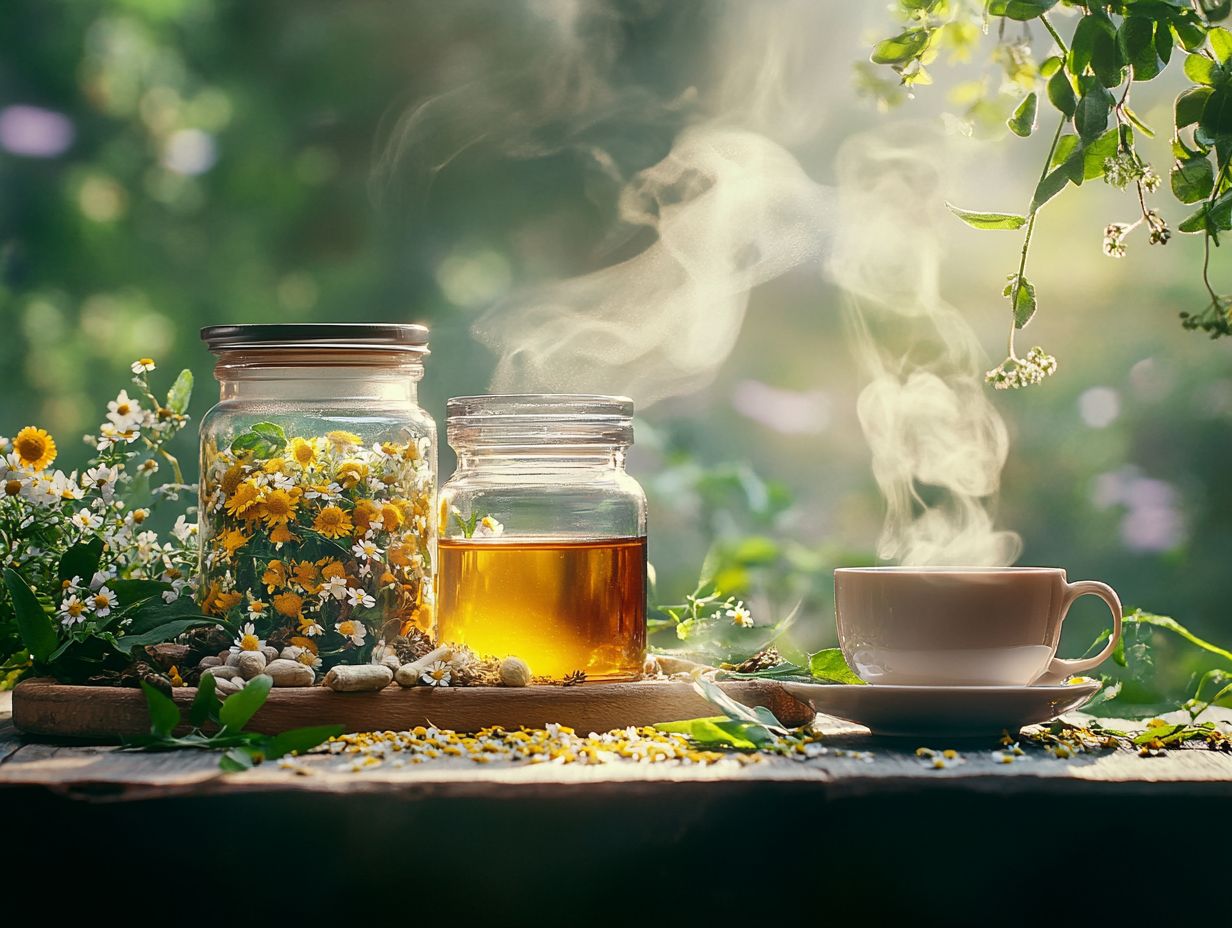
Traditional treatment methods for Seasonal Affective Disorder typically include light therapy, cognitive behavioral therapy, and medications. Each option is tailored to suit your unique needs if you find yourself grappling with this condition.
Light therapy involves daily exposure to bright, artificial light that mimics the glow of natural sunlight. Many patients find this approach particularly effective, as it helps regulate circadian rhythms and lifts their mood.
Cognitive behavioral therapy focuses on identifying and reshaping negative thought patterns associated with SAD. This process gives you the power to develop stronger coping strategies and resilience.
Medications often include antidepressants designed to alleviate symptoms, providing a necessary boost for those experiencing significant mood disruptions.
These traditional methods can provide great benefits. However, it s crucial to be aware of potential drawbacks. Light therapy requires a considerable time commitment, cognitive behavioral therapy necessitates working with a trained therapist, and medications may carry side effects that vary from person to person.
Herbal Remedies for SAD
Herbal remedies for Seasonal Affective Disorder have gained popularity as natural alternatives to conventional treatments. By leveraging the capabilities of adaptogens substances that help the body adapt to stress and herbal nervines herbs that soothe the nervous system you can support your mood and enhance your overall mental health gently and effectively.
Popular Herbs for Managing SAD
Among the popular herbs for managing Seasonal Affective Disorder, you’ll find California poppy and St. John’s wort, both celebrated for their potential mood-enhancing properties.
People are excited about these herbal remedies and their ability to lift your mood. California poppy, known for its calming effects, may help reduce anxiety and promote restful sleep essential when daylight hours dwindle. On the flip side, St. John’s wort is frequently highlighted in studies for its effectiveness in boosting serotonin levels, which is closely linked to mood regulation.
Incorporating these herbs into your daily routine may not only lift your spirits but also provide a valuable complementary approach to other treatment options. This is supported by positive anecdotal experiences and promising research findings.
How They Work and Their Effectiveness
The effectiveness of herbal remedies like California poppy and St. John’s wort in managing Seasonal Affective Disorder hinges on their ability to influence mood regulation and enhance overall mental health.
California poppy interacts with your body’s neurotransmitters, boosting serotonin levels and cultivating a sense of calm. Meanwhile, St. John’s wort has garnered extensive research for its capacity to alleviate depressive symptoms.
Studies indicate that these plants could provide relief from the lethargy and irritability you might experience during darker months. Anecdotal evidence suggests that many individuals have found notable benefits by incorporating these herbs into their daily routines, experiencing improved emotional resilience and clarity.
These herbal solutions can provide a holistic way to improve your mental wellness, contributing not only to symptom relief but also nurturing a deeper connection with your natural healing process.
Combining Herbal Remedies with Traditional Treatment
Combining herbal remedies with traditional treatments for Seasonal Affective Disorder presents a holistic approach to managing symptoms. This method offers several benefits, but it also has potential risks that merit careful consideration.
If you re struggling with SAD, starting treatment today can significantly improve your mood. Consider adding these herbs to your daily routine for a natural mood boost!
Benefits and Risks
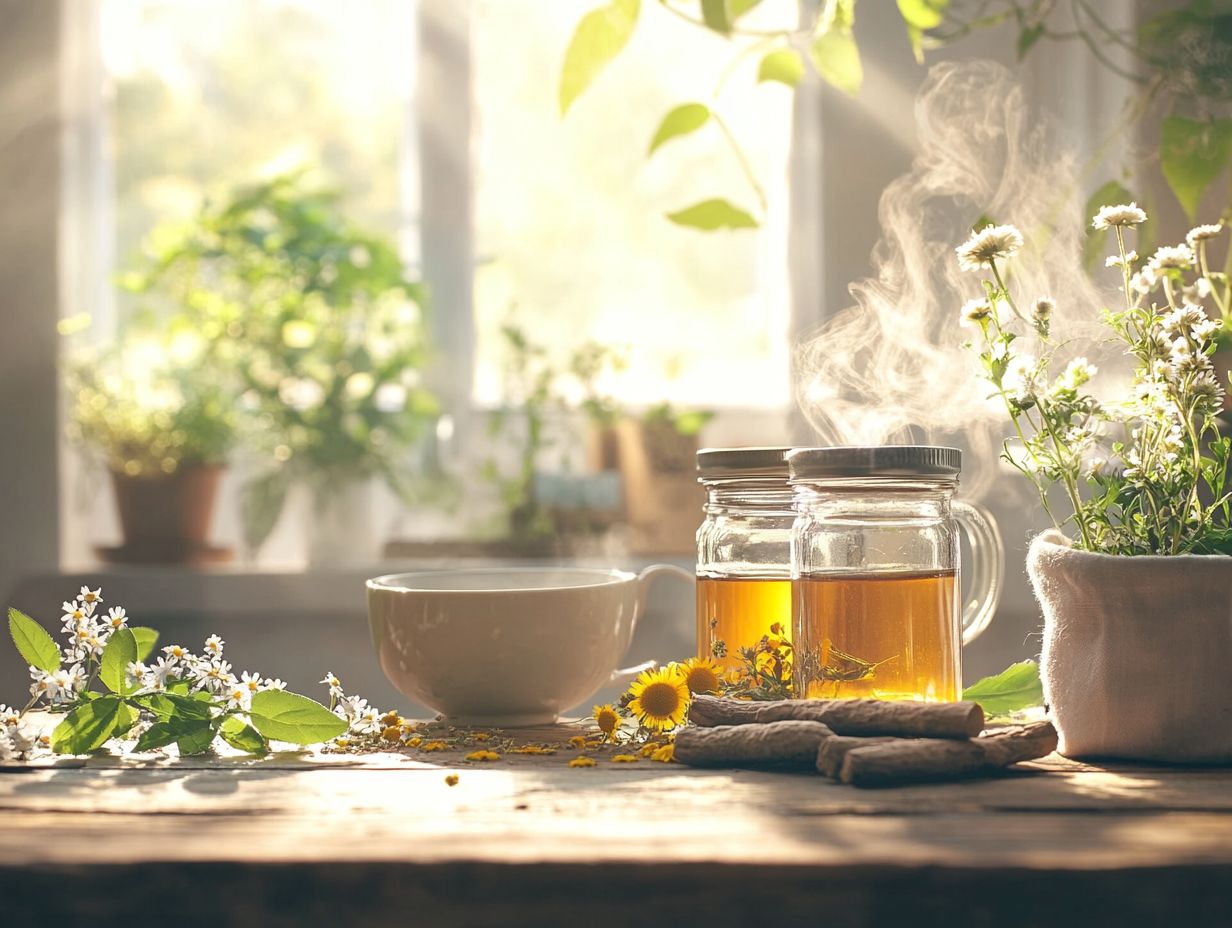
The advantages of blending herbal remedies with traditional treatments for Seasonal Affective Disorder (SAD) can significantly enhance your mood regulation and overall mental health. However, it s essential to weigh the potential risks with care.
Experts recommend integrating supplements like St. John s Wort or omega-3 fatty acids alongside conventional therapies such as light therapy or antidepressants for a more holistic approach. This combination may help alleviate symptoms more effectively, as research shows that the natural compounds in these herbs can positively influence how your brain chemicals work, providing you with added relief.
Be cautious; interactions between these treatments can sometimes lead to adverse effects, including heightened side effects from medications or unpredictable mood changes. Don t wait! Consult healthcare professionals to create a personalized and safe treatment plan that considers both the potential benefits and inherent risks.
Tips for Choosing and Using Herbal Remedies for SAD
When selecting and utilizing herbal remedies for Seasonal Affective Disorder (SAD), consider key factors such as dosage, effectiveness, and safety. By doing so, you can maximize the mental health benefits and support your well-being effectively.
Dosage and Safety Considerations
Understanding the proper dosage and safety considerations is essential when you turn to herbal remedies for Seasonal Affective Disorder (SAD). This knowledge helps minimize risks while maximizing benefits.
By adhering to recommended dosages, you enhance the effectiveness of these remedies and significantly reduce the chances of experiencing adverse reactions. Be aware of potential side effects from incorrect usage, such as gastrointestinal discomfort or allergic reactions.
Consulting healthcare professionals can provide you with personalized advice tailored to your health history and specific needs. This proactive approach gives you the power to use herbal treatments more effectively and underscores the importance of safe practices in managing mental health conditions like SAD.
Frequently Asked Questions
Discover What SAD Really Is!
Seasonal Affective Disorder (SAD) is a type of depression that occurs during specific seasons, typically during fall and winter. It is commonly known as “winter blues” and is believed to be caused by a lack of sunlight.
What are the symptoms of Seasonal Affective Disorder (SAD)?
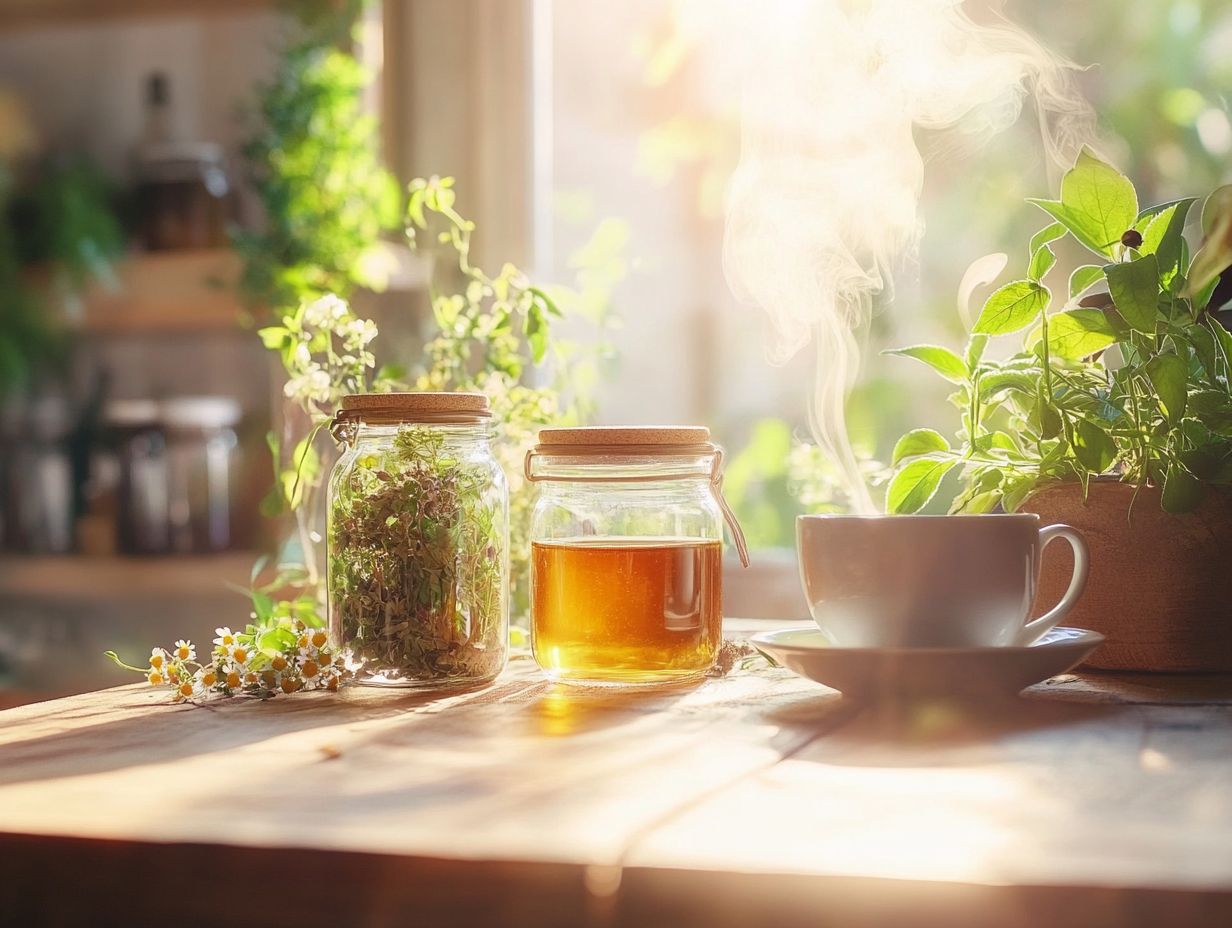
The symptoms of SAD may vary from person to person. Common ones include:
- Feelings of sadness
- Low energy
- Changes in appetite
- Difficulty sleeping
- Loss of interest in activities
It is important to seek professional help if you experience these symptoms.
How can herbal remedies help with Seasonal Affective Disorder (SAD)?
Herbal remedies can help with SAD by providing natural and gentle relief from symptoms. They can also help to boost mood and energy levels. However, it is important to consult with a healthcare professional before starting any herbal remedies.
What are some popular herbal remedies for Seasonal Affective Disorder (SAD)?
Some popular herbal remedies for SAD include:
- St. John’s Wort
- American ginseng
- Rhodiola
These herbs have been used for centuries to improve mood and reduce symptoms of depression.
Are herbal remedies safe to use for Seasonal Affective Disorder (SAD)?
Herbal remedies are generally considered safe when used in appropriate doses and under the guidance of a healthcare professional. However, it is important to note that some herbs may interact with certain medications, so consulting with a healthcare provider before use is essential.
Can herbal remedies be used as a substitute for traditional treatment for Seasonal Affective Disorder (SAD)?
No, herbal remedies should not be used as a substitute for traditional treatment for SAD. They can be used as a complementary therapy, but it is important to seek professional help and follow recommended treatment plans for managing SAD.
If you have more questions or need support, feel free to reach out for further information!

